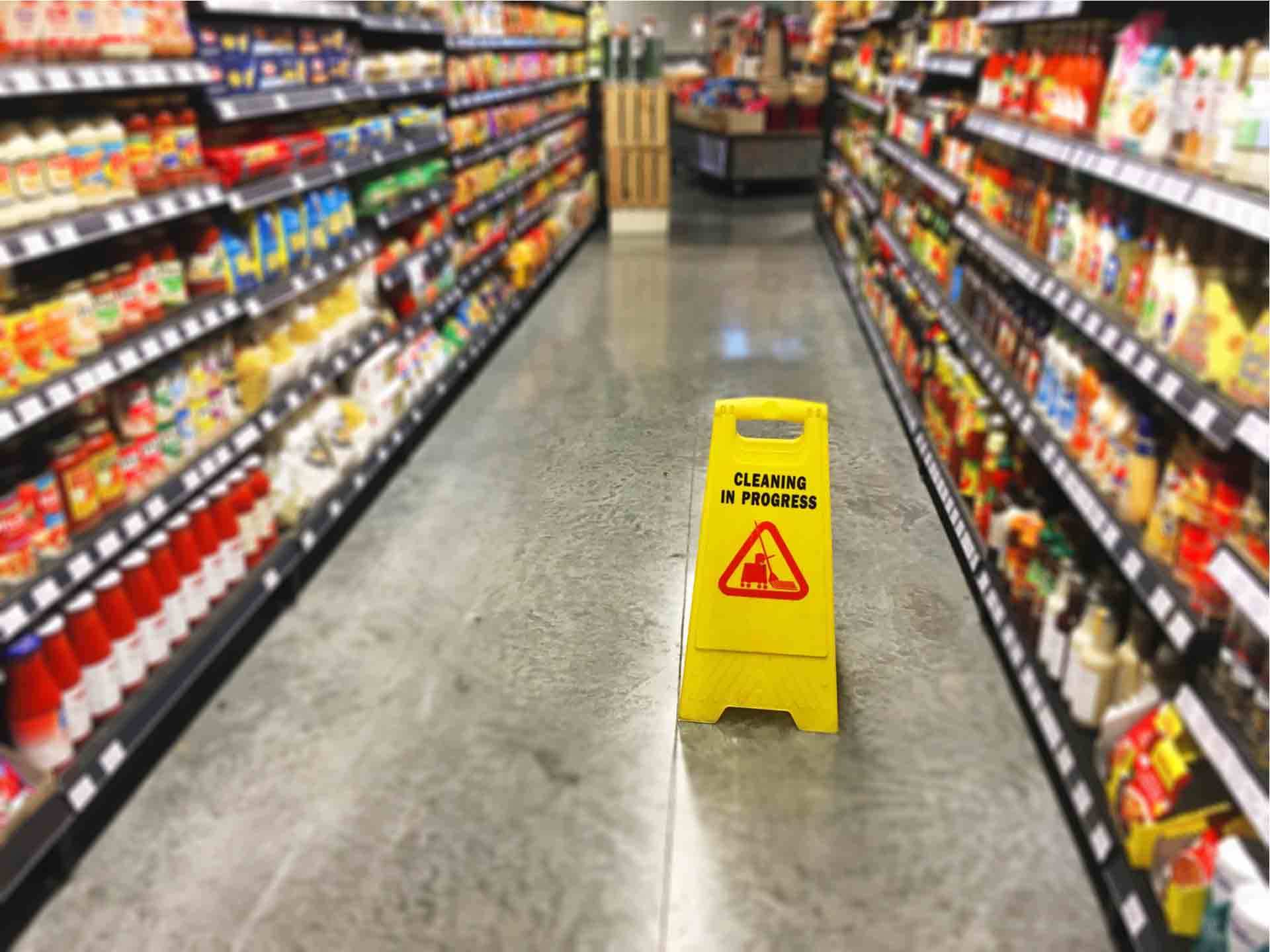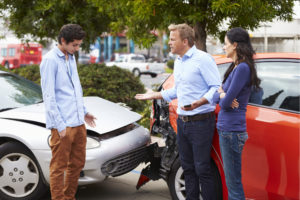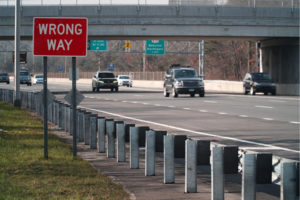
Whether an injury is caused by a car accident or a dog bite, it may require a trip to the emergency room – and many other facilities, to get you to Maximum Medical Improvement (MMI). In addition to stress, pain and loss of employment, your injuries can place a serious strain on your finances – especially when you start to receive medical bills. If your injuries require surgery, you will likely spend months in recovery doing Physical Therapy (PT) and/or Occupational Therapy (OT), which will certainly result in a mounting pile of medical bills, which will make you question: Who is responsible for paying these bills?
The Negligent Party Determines the Compensation Amount
Ask yourself: Do you have money to take care of all the expenses associated with your injury? Fortunately, Illinois is a fault state, which means you can demand compensation from the responsible party. However, these cases can be complicated, and you may end up being denied compensation if you are found partially responsible for the accident which caused your injuries.
In this case, Robert “Bob” T. Edens, an attorney with more than 27 years of experience in representing clients who have been injured as a result of the negligence of others, can fight for your rights. Bob can put his years of experience to work and help you understand your responsibilities and how the at-fault driver can be forced to pay you the most amount of money you deserve for you injuries and, if necessary, your property damage.
Illinois is a contributory fault state, which means the damages you can recover from the at-fault party are reduced by the amount of negligence that can be assigned to any other party, including yourself. For example, if you were in an accident where a vehicle in front of you struck another vehicle that was pulling out from a private drive, who could be held liable for the accident? The answer, most likely, would be the vehicle pulling out of the private drive. However, if the vehicle in front of you was distracted due to texting on his/her phone and could have stopped, that driver could also be held liable. Finally, if you were tailgating the vehicle in front of you, you could also be can be held liable.
Although they may act like it, insurance adjusters are not the final word on how fault will be allocated amongst responsible parties. The allocation of fault is determined by the judge or jury after hearing all evidence. Anything you say to the insurance adjusters can and will be used against you. Therefore, except for the adjuster assigned to your case from your own insurance company, it is in your best interest to call Bob Edens and get a free consultation before giving any insurance adjuster a recorded statement.
Any statement you provide to an adjuster from an insurance carrier, other than your own insurance carrier, will result in them using your statement to allocate less fault on their insured and more fault on you. Simply put, if the judge or jury finds that you were 50 percent at fault for the accident, you may not receive compensation. However, if you are found to be less than 50 percent at fault, the total amount of damages you receive will be reduced by the percentage of fault attributed to you.
In order to win a claim based on the negligence of another party you must prove four (4) things:
- The defendant owed a duty to do something or refrain from doing something, AND;
- The defendant failed to do what he/she was supposed to do, or did what he/she was supposed to refrain from doing, AND;
- The defendant’s failure to do what he/she was supposed to do, or he/she failed to refrain from doing something resulted in you being damaged in some way, AND;
- What damages and/or injuries were caused by the defendant’s failure to do what he/she was supposed to do, or as a result of the defendant’s failure to refrain from doing something he/she was supposed to refrain from doing.
If the defendant refuses to pay damages, despite being guilty of all the above elements, you can file a complaint against the at fault individual or company. Their insurance carrier will hire an attorney for them and pay any damages a judge or jury imposes up to the limits of the policy of insurance in most cases.
Illinois’ No-Nonsense Dog Bite Law
However, this does not mean Illinois treats all personal injury claims the same. To understand how seriously the state takes personal injury claims, just take a look at its strict dog bite laws.
Unlike other states where most dog owners are protected from liability the first time their pet bites someone, dog owners in Illinois are strictly liable the first time around. In other words, even if their dog has never exhibited aggressive behavior, owners are responsible for any injury they cause to other people.
This will be the case if their dog attacks or tries to attack another person without provocation – wherever they are. The injuries resulting from the attack are damages the dog owner must pay to the injured party.

Whether you were injured because you slipped and fell on someone’s property or because of a dog attack, get in touch with the Law Offices of Robert T. Edens P.C. today. We have been representing and protecting the rights of our clients for more than 20 years and are conveniently located in Libertyville, Waukegan, Woodstock and Antioch, Illinois.
 The aim of personal injury lawsuits is to ensure the injured party can return to the physical and mental state they were in before they sustained injuries because of someone’s negligence. However, in some cases, the defendant may act violently, cause delays in the investigation or do things to jeopardize a claim against them.
The aim of personal injury lawsuits is to ensure the injured party can return to the physical and mental state they were in before they sustained injuries because of someone’s negligence. However, in some cases, the defendant may act violently, cause delays in the investigation or do things to jeopardize a claim against them.

 If you are injured in a store in Illinois, you can receive compensation whether you are or aren’t at fault for the accident. This is according to the state’s
If you are injured in a store in Illinois, you can receive compensation whether you are or aren’t at fault for the accident. This is according to the state’s  According to the
According to the  Very few teens wait until they are older to get behind the wheel. However, without proper training, they can become hazards on the road. If the teen’s vehicle isn’t insured, you can end up paying out of pocket and have to
Very few teens wait until they are older to get behind the wheel. However, without proper training, they can become hazards on the road. If the teen’s vehicle isn’t insured, you can end up paying out of pocket and have to 
 If you are ever involved in a car accident in Illinois due to someone else’s fault or negligence, you have the right to compensation. Illinois follows a
If you are ever involved in a car accident in Illinois due to someone else’s fault or negligence, you have the right to compensation. Illinois follows a  Most parents don’t realize, or want to believe this, but they can be held liable if their children get injured on their watch. In Illinois, children mean minors younger than 19 years old. Besides injuries, this also includes car accidents caused by said children because of negligence, lack of parental supervision and/or lack of skills.
Most parents don’t realize, or want to believe this, but they can be held liable if their children get injured on their watch. In Illinois, children mean minors younger than 19 years old. Besides injuries, this also includes car accidents caused by said children because of negligence, lack of parental supervision and/or lack of skills. There were a total of
There were a total of  Each year in the U.S., 300 to 400 people die in auto accidents due to wrong-way driving. Many of these wrong way auto accidents are either high-speed sideswipe crashes or head-on collisions. Wrong-way driving (WWD) auto accidents happen when a vehicle driving is travelling in the opposite direction of traffic on either highways or ramps and collide with a vehicle that is legally and properly travelling the right-of-way. Because these crashes can lead to death and severe personal injuries with long term disabilities and brain damage, it is important for all drivers to be aware of the
Each year in the U.S., 300 to 400 people die in auto accidents due to wrong-way driving. Many of these wrong way auto accidents are either high-speed sideswipe crashes or head-on collisions. Wrong-way driving (WWD) auto accidents happen when a vehicle driving is travelling in the opposite direction of traffic on either highways or ramps and collide with a vehicle that is legally and properly travelling the right-of-way. Because these crashes can lead to death and severe personal injuries with long term disabilities and brain damage, it is important for all drivers to be aware of the  Lack of sleep and inability to concentrate can have a significant impact on the ability of individuals to work efficiently. Not only can it lead to injuries, but it can also be life-threatening – especially for bus drivers, transportation workers and employees commuting to their night shift workplace. Even though there is 60 percent less traffic at night, 40 percent of all vehicle crashes happen at night. Many accidents are due to the disruption caused by circadian rhythm, where our body responds to sleep at night.
Lack of sleep and inability to concentrate can have a significant impact on the ability of individuals to work efficiently. Not only can it lead to injuries, but it can also be life-threatening – especially for bus drivers, transportation workers and employees commuting to their night shift workplace. Even though there is 60 percent less traffic at night, 40 percent of all vehicle crashes happen at night. Many accidents are due to the disruption caused by circadian rhythm, where our body responds to sleep at night.